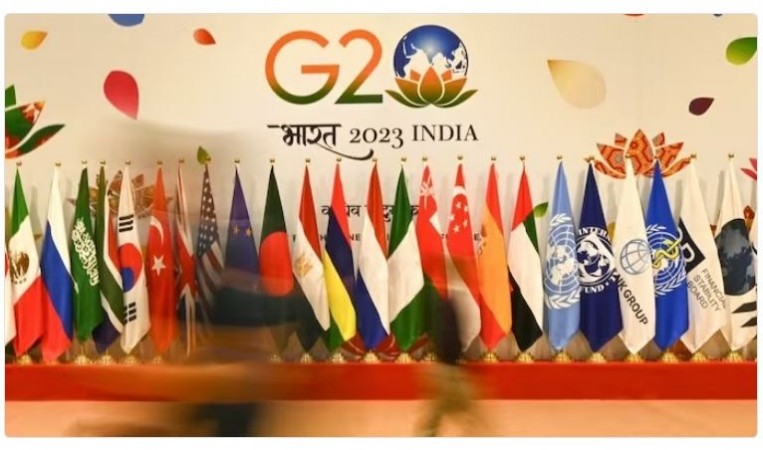
NEW DELHI: The World Bank has praised India's progress under the leadership of Prime Minister Narendra Modi in anticipation of the G20 Summit taking place in New Delhi. A document prepared by the World Bank for the G20 highlights the significant role played by Digital Public Infrastructure (DPI) in India over the past decade during Modi's government.
The document, titled 'The G20 Global Partnership for Financial Inclusion,' emphasizes how DPIs have had a transformative impact on India, extending beyond inclusive finance. It underscores the pioneering measures taken by the Modi government in shaping the DPI landscape and regulating it.
Regarding financial inclusion, the World Bank document commends India's DPI approach, noting that India achieved in just six years what would have otherwise taken approximately five decades. The JAM Trinity initiative has propelled the financial inclusion rate from 25% in 2008 to over 80% of adults in the last six years, reducing the timeline by up to 47 years, thanks to DPIs. The document unequivocally states, "While DPIs played a crucial role in this leap, other factors such as an enabling legal and regulatory framework, national policies to expand account ownership, and leveraging Aadhaar for identity verification were also critical."
Since its inception, the number of accounts opened under the Pradhan Mantri Jan Dhan Yojana (PMJDY) has tripled from 147.2 million in March 2015 to 462 million by June 2022, with women owning 56 percent of these accounts, totaling more than 260 million. The Jan Dhan Plus program has encouraged low-income women to save, resulting in over 12 million women customers as of April 2023 and a 50% increase in average balances within just five months. By engaging 100 million low-income women in savings activities, public sector banks in India are estimated to attract approximately Rs 25,000 crore ($3.1 billion) in deposits.
Regarding Government to Person (G2P) Payments, the document highlights that in the past decade, India has built one of the world's largest digital G2P architectures using DPI. This approach has facilitated transfers amounting to about $361 billion directly to beneficiaries through 312 key schemes from 53 central government ministries. As of March 2022, this has resulted in total savings of $33 billion, equivalent to nearly 1.14 percent of GDP.
The document also discusses the success of the Unified Payments Interface (UPI), with over 9.41 billion transactions valued at about Rs 14.89 trillion taking place in May 2023 alone. For the fiscal year 2022–23, the total value of UPI transactions accounted for nearly 50 percent of India's nominal GDP.
Furthermore, the DPI in India has enhanced efficiency for private organizations by reducing complexity, costs, and the time required for business operations. Some Non-Banking Financial Companies (NBFCs) have reported an 8% higher conversion rate in Small and Medium Enterprise (SME) lending, a 65% reduction in depreciation costs, and a 66% reduction in costs related to fraud detection. Industry estimates indicate that banks' customer onboarding costs in India have decreased from $23 to $0.1 with the use of DPI.
The lower cost of compliance for Know Your Customer (KYC) procedures has been achieved through India Stack, which has digitized and simplified KYC processes. Banks using e-KYC have reduced their compliance costs from $0.12 to $0.06. This cost reduction has made lower-income clients more attractive to serve and has generated profits for the development of new products.
In the realm of cross-border payments, the UPI-PayNow interlinking between India and Singapore, operationalized in February 2023, aligns with G20's financial inclusion priorities and facilitates faster, cheaper, and more transparent cross-border transactions.
Additionally, India's Account Aggregator (AA) Framework, regulated by the Reserve Bank of India (RBI), aims to strengthen the country's data infrastructure. This framework enables consumers and enterprises to share their data only with their consent through an electronic consent framework. Currently, a total of 1.13 billion cumulative accounts are enabled for data sharing, with 13.46 million cumulative consents raised as of June 2023.
Lastly, India's Data Empowerment and Protection Architecture (DEPA) empowers individuals to have control over their data, allowing them to share it across service providers. This promotes tailored product and service access without requiring new entrants to invest heavily in pre-existing client relationships, fostering innovation and competition.